Afghan shelter provides security for abused women
Kabul, Afghanistan
Afghan women who have suffered violence and trauma at the hands of their families, find secret reprieve in shelter.
At the The Afghan Women Skills Development Centre (AWSDC) shelter in Kabul, Maryam, Shokufa, Malae, and Asifa make ends meet behind locked doors.
The AWSDC, a non-governmental organisation, helps severely traumatised girls and women who are victims of forced prostitution, domestic violence, and child marriages. These women are hidden behind guarded walls and protected from the outside world.
Many of the victims here survived years of abuse before finding their way to the shelter. And for most, the shelter is a rest stop on a long road of battles in courts in a male-dominated legal system.
Life at the shelter is safe but boring. There are few activities but food preparation, laundry, regular Quran lessons, and sleep, which helps them forget the past.
Once a week the women visit a beauty salon inside the shelter where the special treatment they receive makes them feel beautiful again and gives them a sense of self-respect.
The women may be safe here, but they are not free as they are permanently under the threat of death through an honour killing by their families.
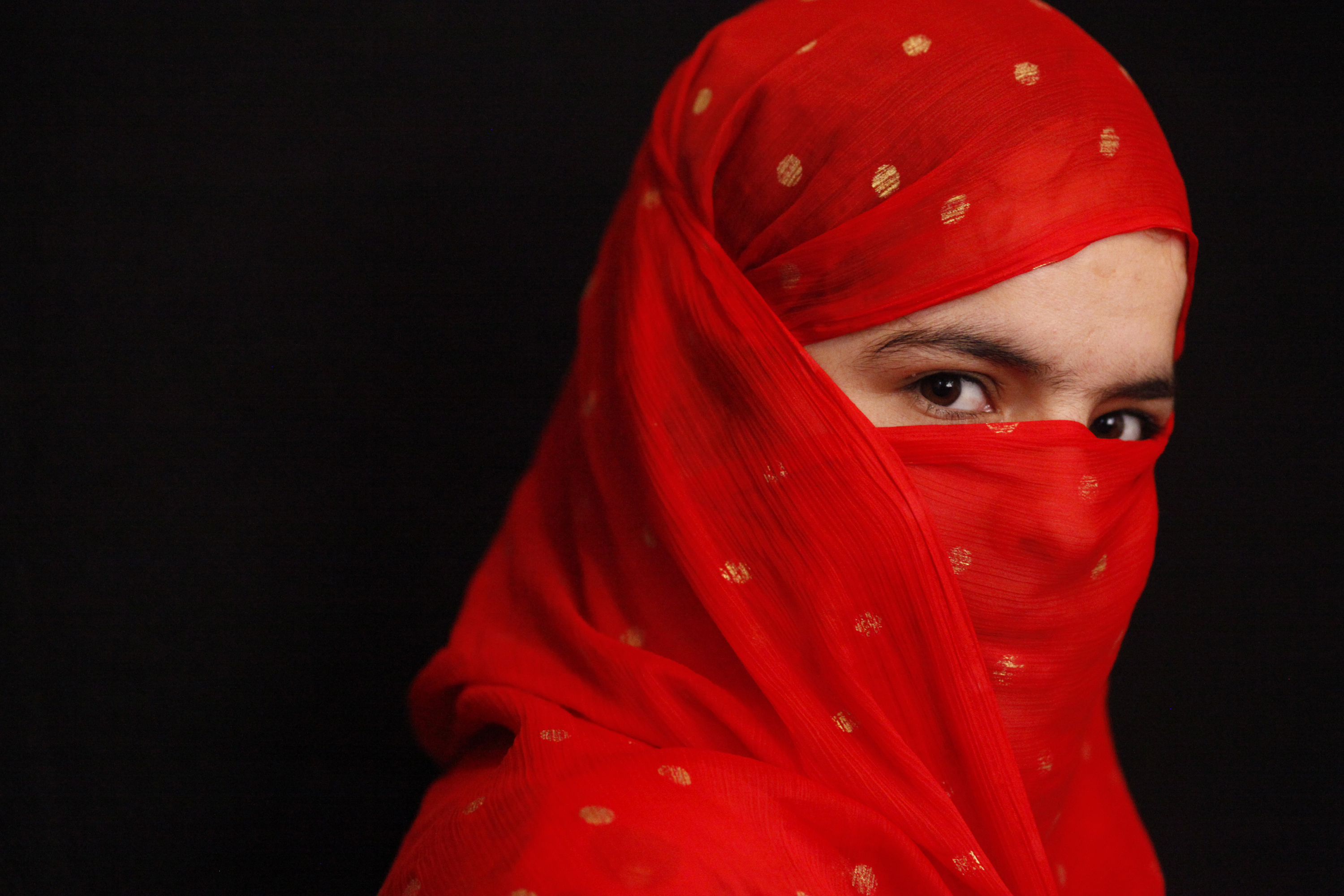
Asifa's father was a Taliban member who promised her in marriage to an older man when she was only three years old. When he died, her mother married another Taliban member who was a violent and abusive drug addict. To escape the situation, Asifa married a man 30 years her senior. Her stepfather disliked her new husband and during an argument stabbed Asifa many times with a knife and pulled out her nails. When Asifa ran to the police, they arrested her for running away and put her in jail. When she was 20 years old, the Ministry of Women's Affairs secured her release and brought her to the shelter. [Marielle van Uitert/Al Jazeera]
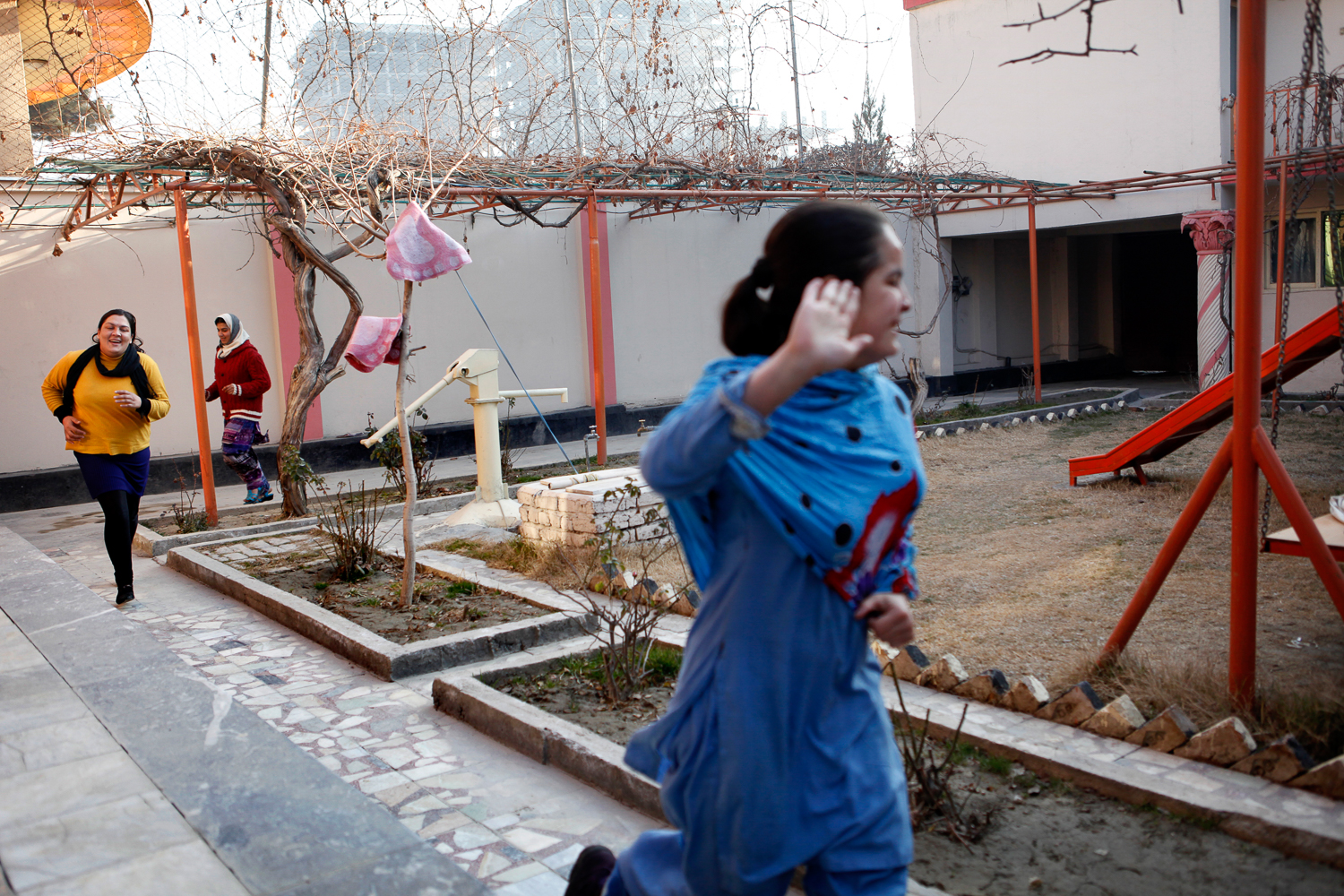
The women run in the small yard of the shelter for an early morning exercise. [Marielle van Uitert/Al Jazeera]
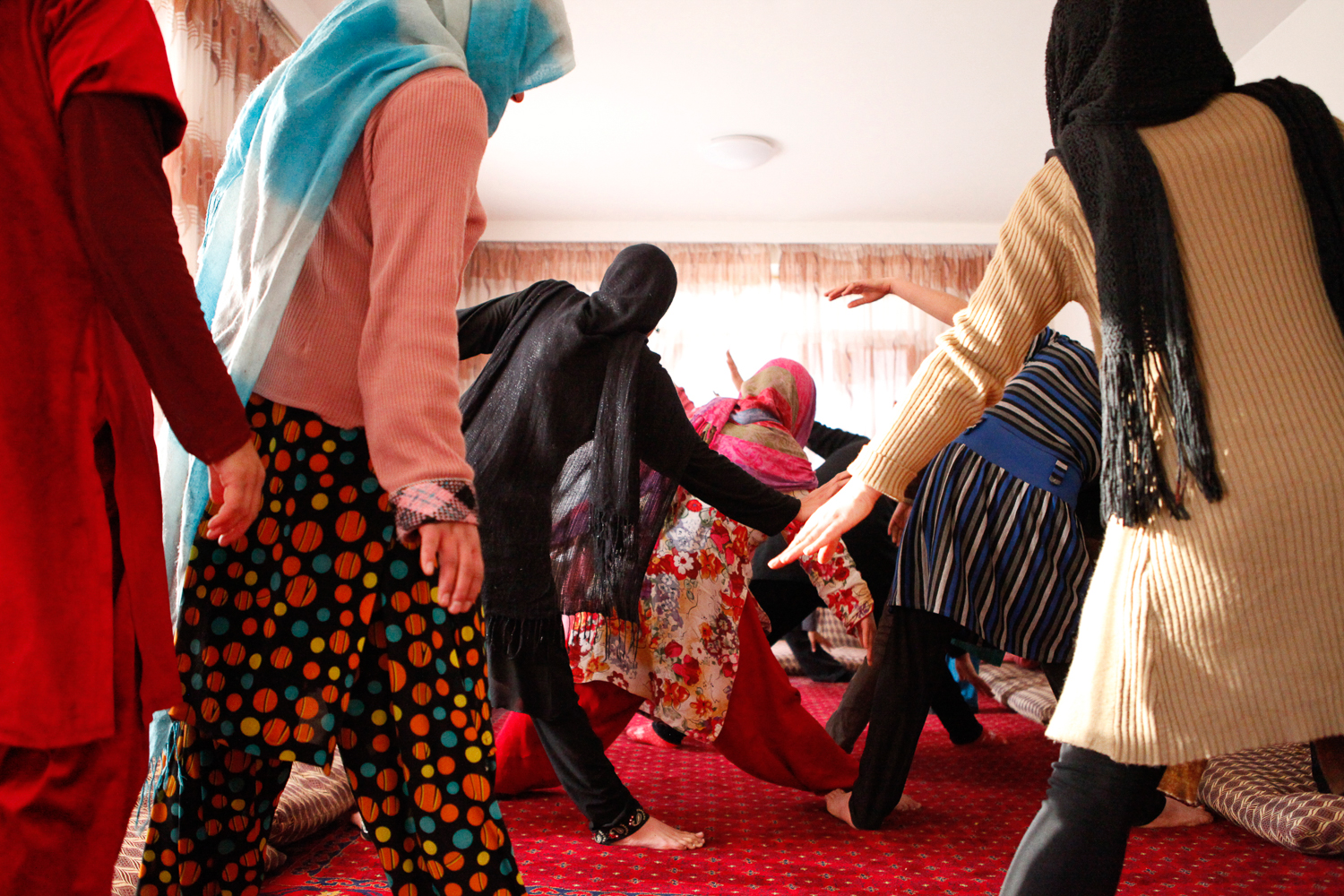
Once in a while, teachers from the outside visit the shelter and do extra exercises with the women. [Marielle van Uitert/Al Jazeera]

Malae, 22, is from Kabul. She was not allowed to attend school, instead her father made her weave carpets day and night at his shop. She was forced to marry a rich man who abused her. Then, her husband's family did not want her any more and Malae had nowhere to go. She thought of hanging herself but instead she went to the police who brought her to the shelter. [Marielle van Uitert/Al Jazeera]

Regular Quran lessons are held at the shelter. [Marielle van Uitert/Al Jazeera]
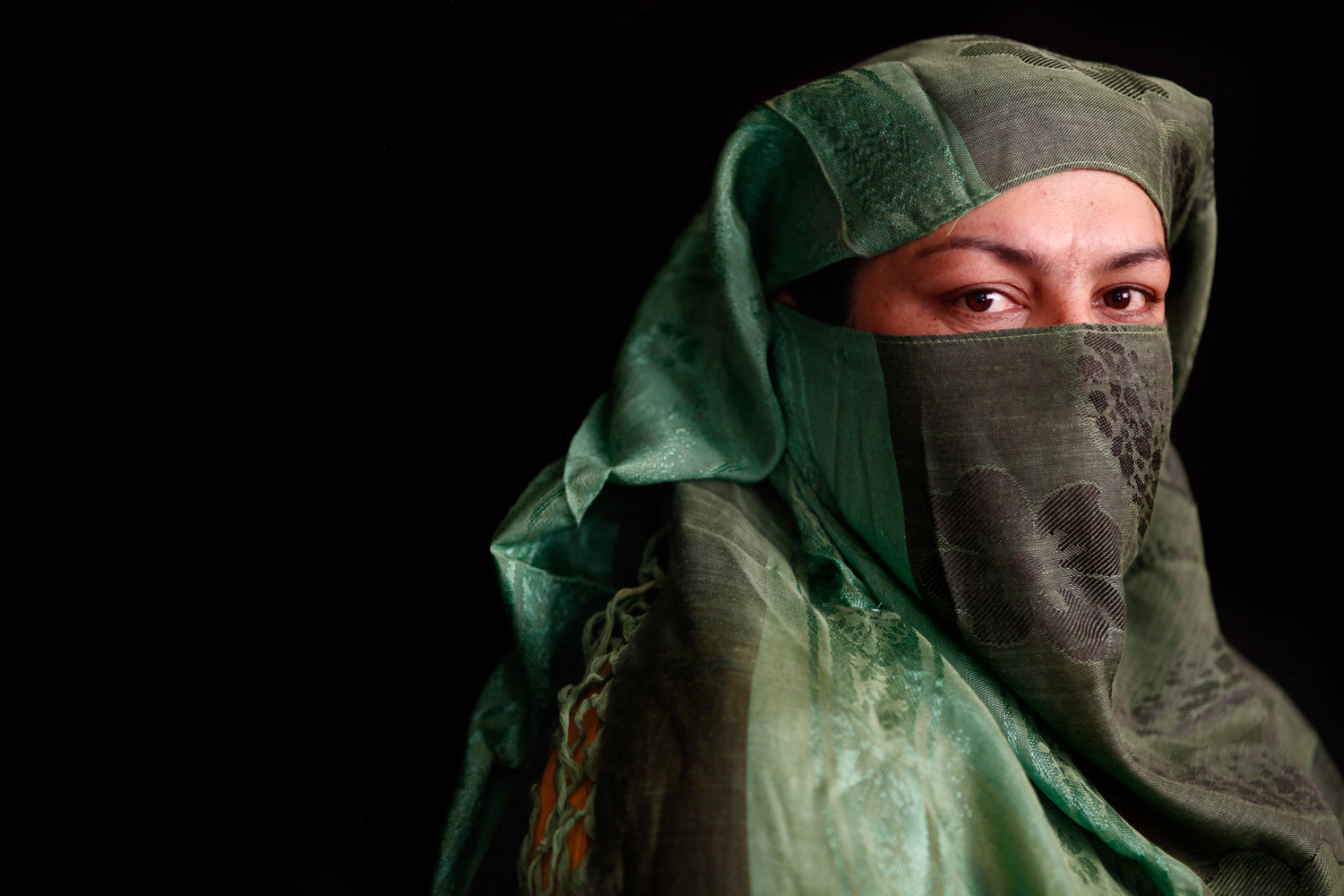
Maryam, 29, is from Baraki. She was forced into marriage at the age of 13 because the Taliban took control of the area where her family lived and her mother thought it would be safer for her to be a married woman instead of being forced into a Taliban marriage. Her husband became extremely aggressive towards her even though she gave birth to three children. He attacked her mother with a knife and ran away with her children. Now she lives in the shelter and believes in a better future. [Marielle van Uitert/Al Jazeera]
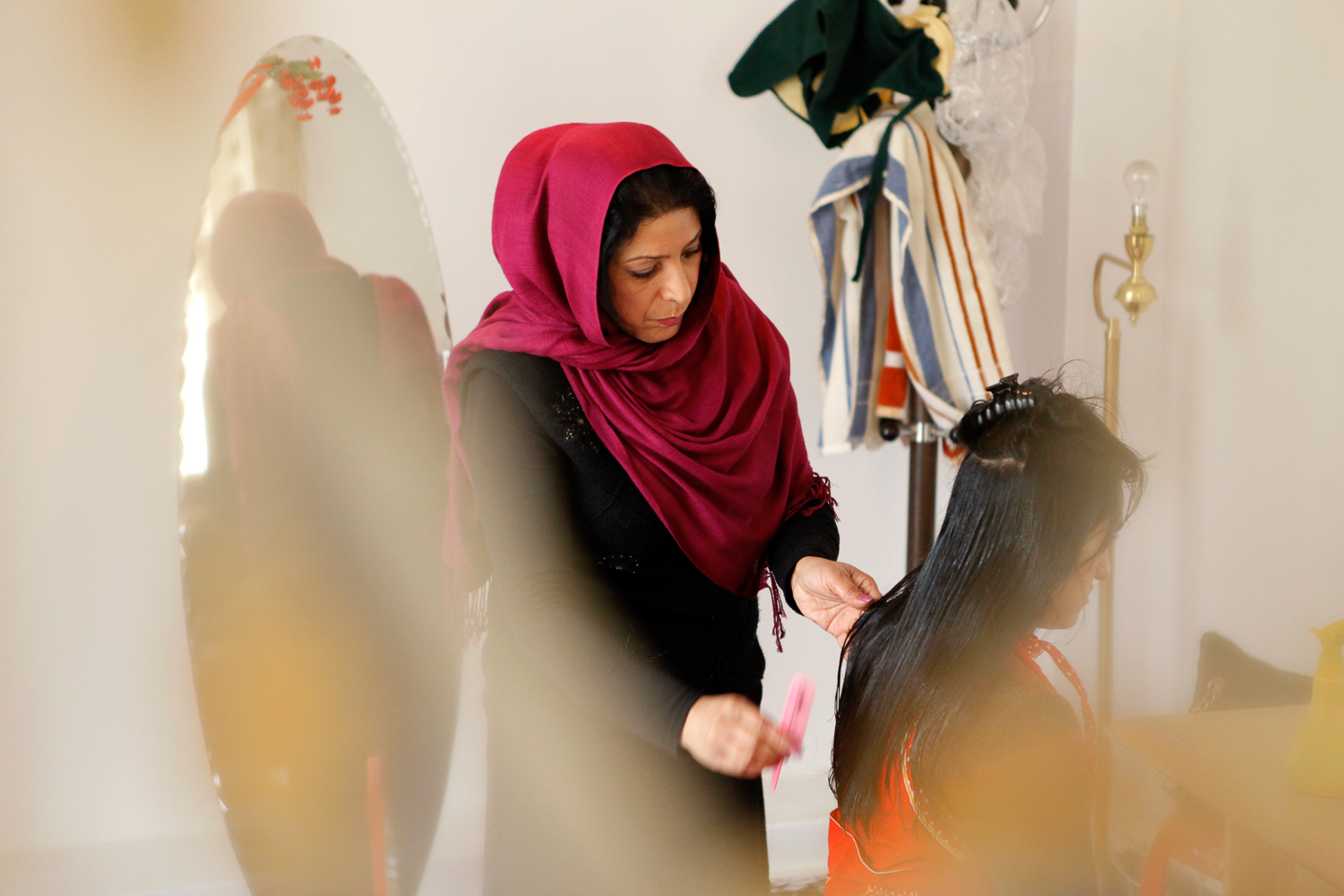
Once a week the women visit the beauty salon where they can feel beautiful again. [Marielle van Uitert/Al Jazeera]
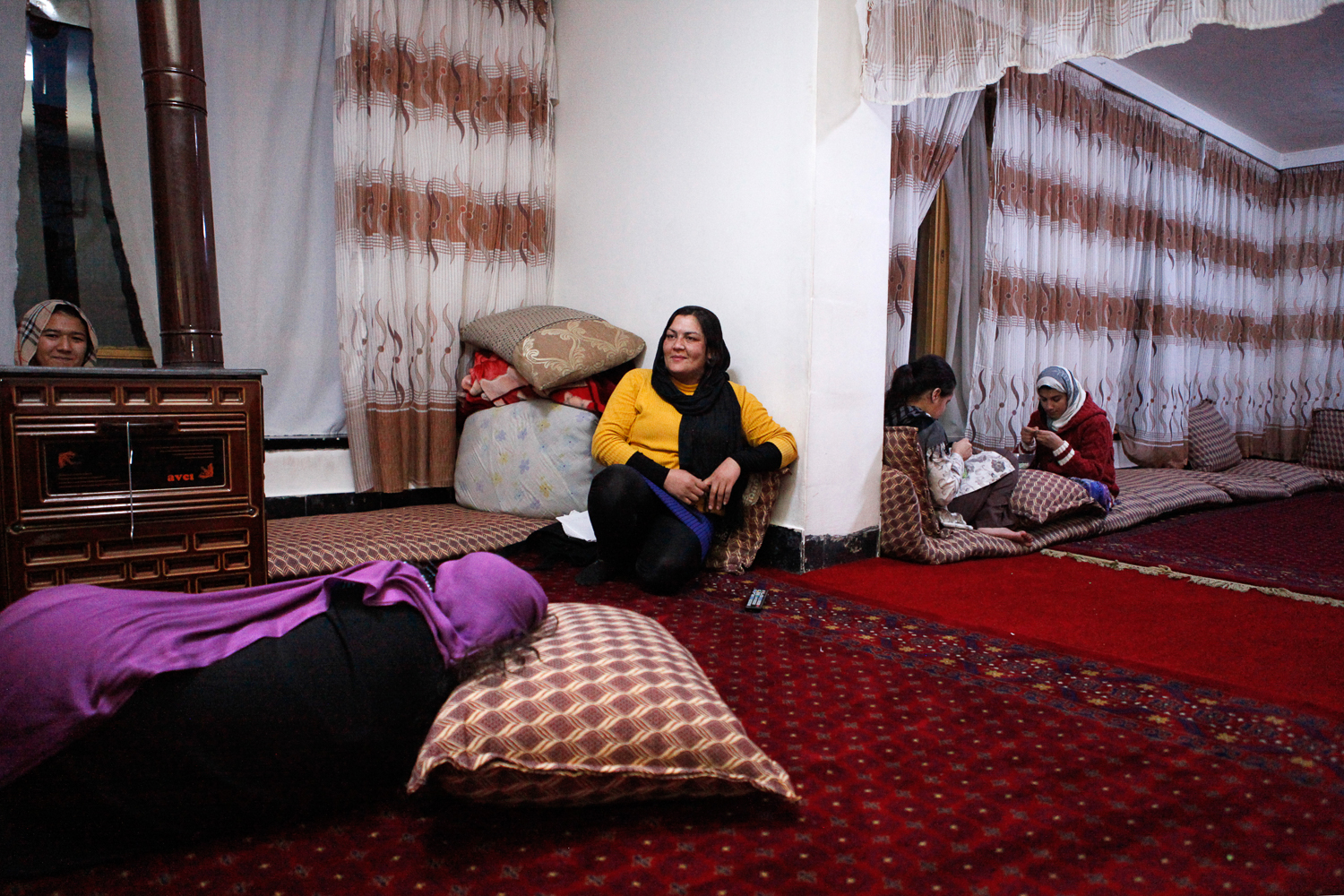
Most of the women spend their days sitting in the living room. [Marielle van Uitert/Al Jazeera]

Shokufa, 22, is from Iran. Her much-older husband's family accused her of adultery, locked her in the basement, and beat her severely. She became pregnant but her husband tried to kill her. She managed to escape, but ended up in prison. Now she is in the shelter, expecting her baby. [Marielle van Uitert/Al Jazeera]
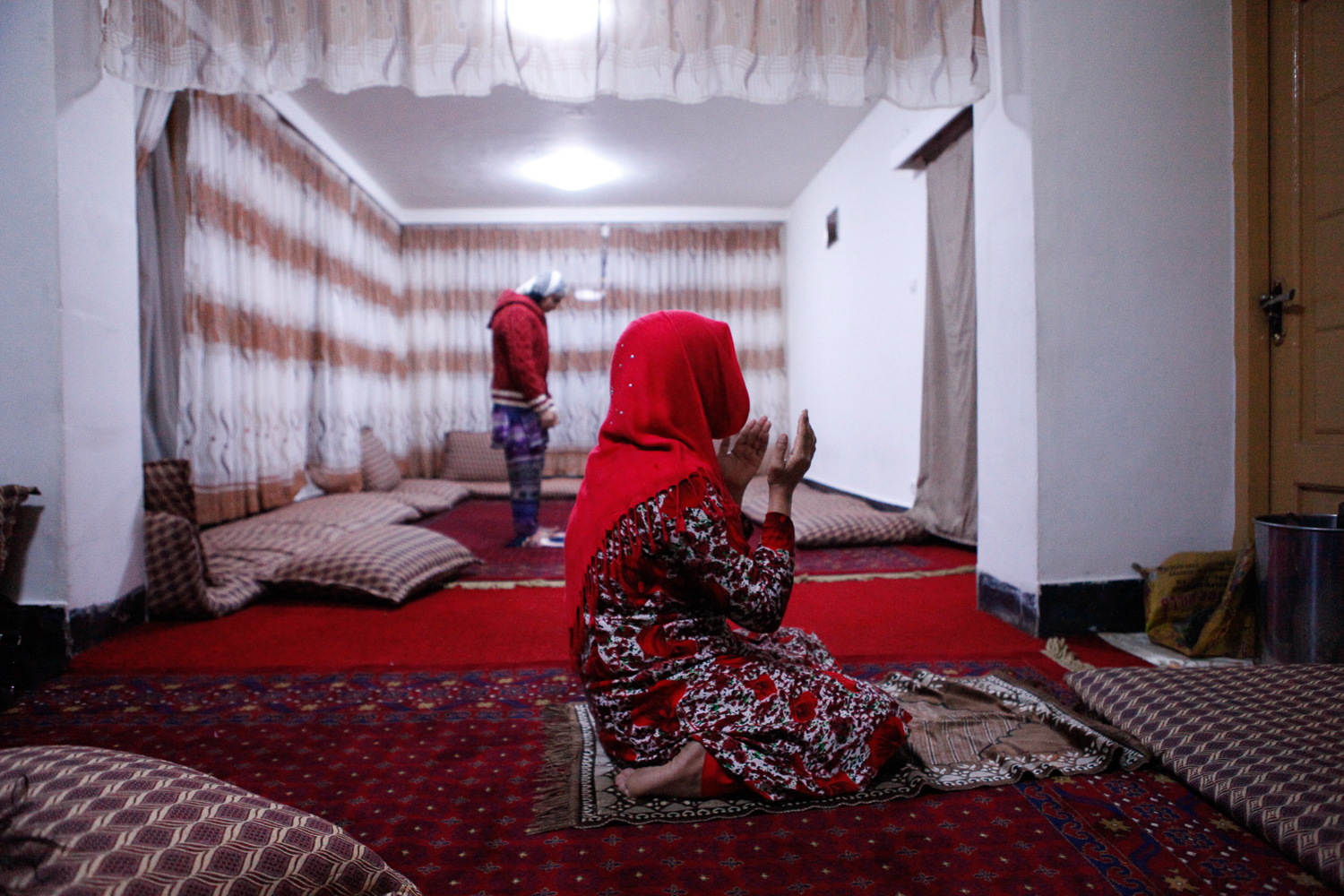
Women perform evening prayers at the shelter. [Marielle van Uitert/Al Jazeera]

The women in the shelter are deeply traumatised and scarred by their experiences and often break down in tears. [Marielle van Uitert/Al Jazeera]
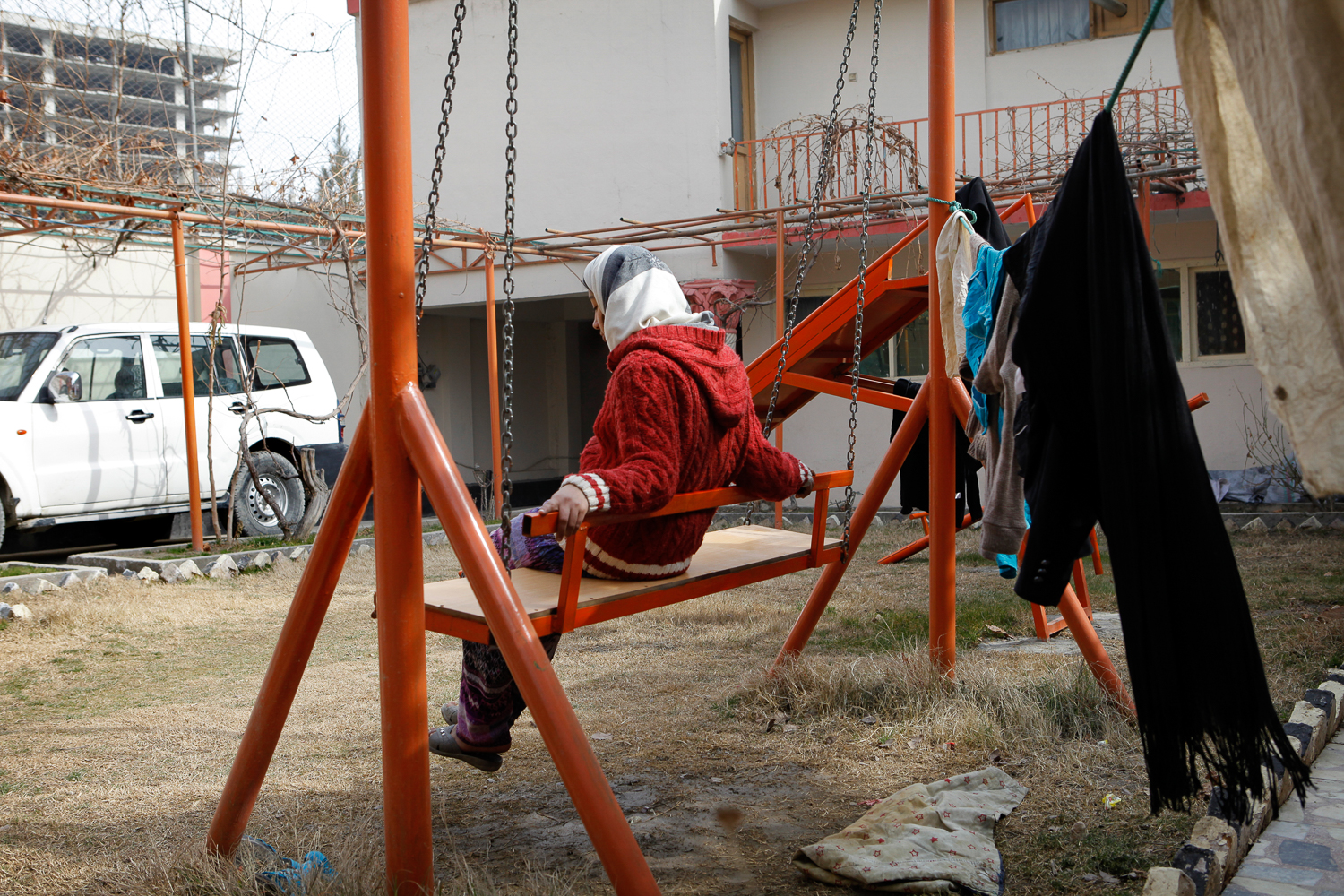
The only freedom is in the yard where they spend time dreaming of a better life. [Marielle van Uitert/Al Jazeera]
Related News
- “I Will Be Executed Before Fulfilling My Dreams”
- The Prosecutor of the International Criminal Court, Fatou Bensouda, requests judicial authorisation to commence an investigation into the Situation in the Islamic Republic of Afghanistan
- Report of Stoning Case in Somalia: A Mother of 8 Stoned to Death in the District of Saakow
- Senate body in Pakistan rejects amendment to child marriage act as ‘un-Islamic’
- FGM raises its ugly head in Sri Lanka with Kerala Support
Related Actions
- WLUML Letter to the Canadian Govt.: Support of Afghan Women's Demands
- Women Living Under Muslim Laws condemns the cowardly attack on Fawzia Koofi
- Joint Statement | To the Human Rights Council: Let’s Protect Women in Sudan
- LAWYERS-HUMAN RIGHTS ACTIVISTS : SAVE NORA
- STATEMENT--Denounce, Protect, Act: Our Collective Duties against Rape and Sexual Assault in Senegal
Relevant Resources
- The Relationship between Feminism and State Policies for the Elimination of Violence against Women: The National Strategy for the Elimination of Violence against Women as an Example
- Recommendations for action against gender-related killing of women and girls
- Report of the Special Rapporteur on violence against women, its causes and consequences
- Addendum to the Report of the Special Rapporteur on violence against women, its causes and consequences
- Morocco's Dilemma: Rights and Reform or Closure and Conservatism?
